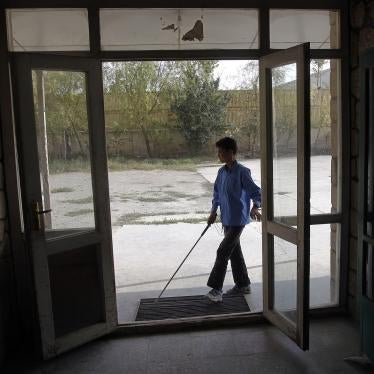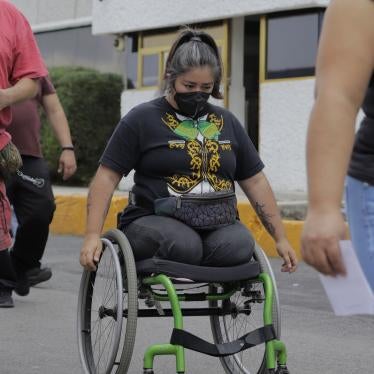As someone with a physical disability that requires intense forms of support, I can easily relate to the stories shared by other people with disabilities about their struggles when they lack access to quality support and care systems that foster independence and the ability to make choices about their own lives.
There was good news in this regard on November 11, when the 15th session of the Regional Conference on Women in Latin America and the Caribbean, organized by the Economic Commission for Latin America and the Caribbean (ECLAC), adopted the Buenos Aires Commitment. All member states of the Commission, 46 in total, agreed to “recognize the importance for persons with disabilities of their individual autonomy and independence, including the freedom to make their own choices.”
Reading accounts like Mark O’Brien’s in his book “How I Became a Human Being” about the abuses he endured while being forced to live a state hospital for two years really makes you shiver. On one occasion, a nurse feeding Mark was bored and in a hurry, so she started stuffing food into his mouth, causing him to cough and gag. The nurse called another nurse for help, and they decided he had problems swallowing and ordered the hospital’s kitchen to only provide him with pureed meals. This decision was taken without asking for his consent, let alone his opinion. Because of the nurse’s neglectful behavior, he lost control over the type of food he wanted to eat.
Abuses like this don’t just happen in hospitals and institutions for people with disabilities. Unfortunately, they also happen within families. During my research for a 2020 report on family violence in Mexico, I spoke with people who were made entirely dependent on their families for care and support. Like Mark, they were denied any say in basic decisions about their lives. Javier (not his real name), 27, who has cerebral palsy, told me his mother wanted to completely control him.
“When I go to school, I need to ride in a van for some time, and I cannot hold my urine,” he said. “I have asked her to put a diaper on me in order not to wet myself, but she refuses, and if I wet my pants, she punishes me by not letting me come to school, which is …the only time when I’m away from home.” Javier’s lack of other options left him financially dependent on his family and feeling, in his words, “trapped.”
These accounts illustrate how, both in an institution or at home, people with disabilities are disempowered, deprived of any control over the support and care they need, and at risk of violence. Many people with disabilities around the world have no recourse but to accept how precarious their situation is. Human Rights Watch has documented abuses caused by institutionalization in numerous countries, including Brazil, India, and Russia.
Care systems often fail to recognize everybody's capacity to act on their own behalf--most obviously the people who receive care, but also people, mostly women, who provide support. Such systems are inconsistent with international human rights law. Instead, any sound policy response aimed at providing support and care services should empower both providers and recipients while treating recipients as agents of their own development and well-being, not passive objects.
The lack of comprehensive national systems for support and care, as documented by many studies worldwide, forces some family members to provide care 24/7, at the expense of their own well-being and personal and economic development.
For countries to live up to the Buenos Aires commitment, they would need to create and implement policies, services, and accessible infrastructure to protect people with disabilities’ right to provide and receive care and to self-care, considering their specific needs. While the resolution does not itself have the force of law, all members of the Commission in the Americas have ratified the Convention on the Rights of Persons with Disabilities, which establishes binding obligations.
Policymakers and other stakeholders worldwide need to have close consultations with organizations of people with disabilities and include them in ongoing discussions around designing and implementing support and care systems. The Committee on the Rights of Persons with Disabilities has developed standards and directives on international obligations for states that have ratified the UN disability rights treaty.
These core obligations of international disability law include the right of people with disabilities to make choices about their lives. The Buenos Aires Commitment is a great start to advancing the autonomy and rights of people with disabilities. As such, it provides key guidance for the design of the national support and care systems underway in many countries in the Americas.









